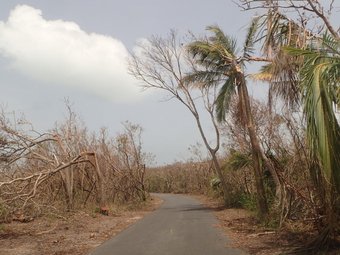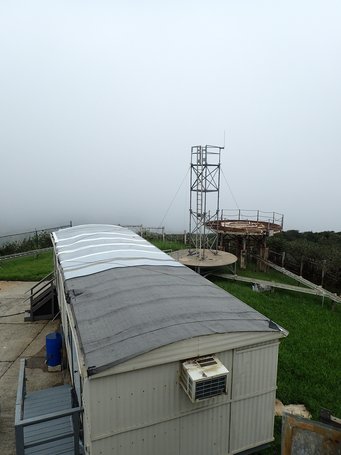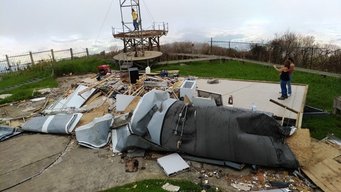From Puerto Rico to Mainz
MPI for Chemistry provides scientific and personal help after a natural disaster
At the end of September, Hurricane Maria swept over Puerto Rico at speeds of up to 250 kilometers per hour and left a trail of destruction. Since then, nothing on the Caribbean island is as it used to be. Tropical forests have lost all their leaves, most of the houses have been destroyed, and water and food supplies have collapsed. To date even the power supply is still far from being re-established. One of the institutions whose daily work is directly affected by the destruction is the Atmospheric Chemistry and Aerosols Research Group of the University of Puerto Rico, which has worked together on scientific projects with the MPI for Chemistry in Mainz for many years. Olga L. Mayol-Bracero is a professor there and is leading the group, and she was a Postdoctoral Fellow at the MPI for Chemistry in the Biogeochemistry Department from 1998 to 2001.
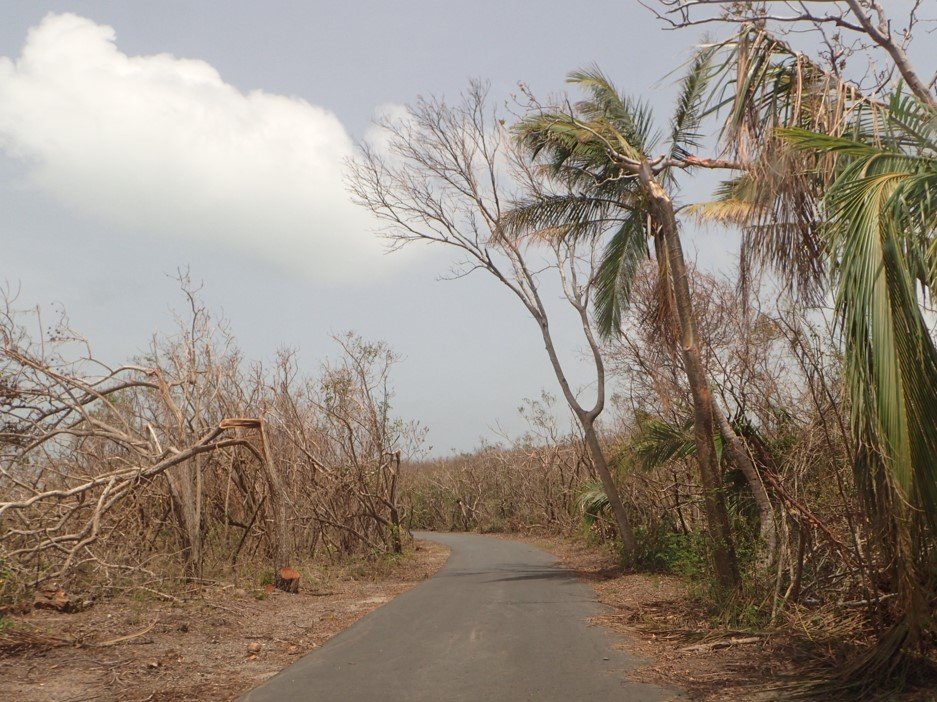
Until beginning of September, she and her group had been operating field research stations where among other things atmospheric aerosol samples were collected. The “Pico del Este” research station, located in the very northeast of the island, was hit by the full force of Hurricane Maria and reduced to ruins. “We’re nowhere near resuming research work there,” says Nicolás Gómez Andújar, who is conducting research in Olga Mayol-Bracero’s group and who had been in the final stages of his Bachelor’s degree before the storm struck the island. All of his plans for the future seemed suddenly out of reach. It was impossible for him to evaluate his data on schedule and to bring the results to paper in his Bachelor thesis.
But the catastrophe turned out to be a blessing in disguise for Nicolás Gómez Andújar. Thanks to the regular scientific exchange between Olga Mayol-Bracero and the MPI for Chemistry the researchers in Mainz heard about the precarious situation of their Puerto Rican colleagues and decided to help. On short notice, Stephan Borrmann and his Particle Chemistry Department made it possible for Nicolás to fly from Puerto Rico to Mainz in order to evaluate his data and finish his thesis there. In mid-December, the 22- year-old researcher will return home.
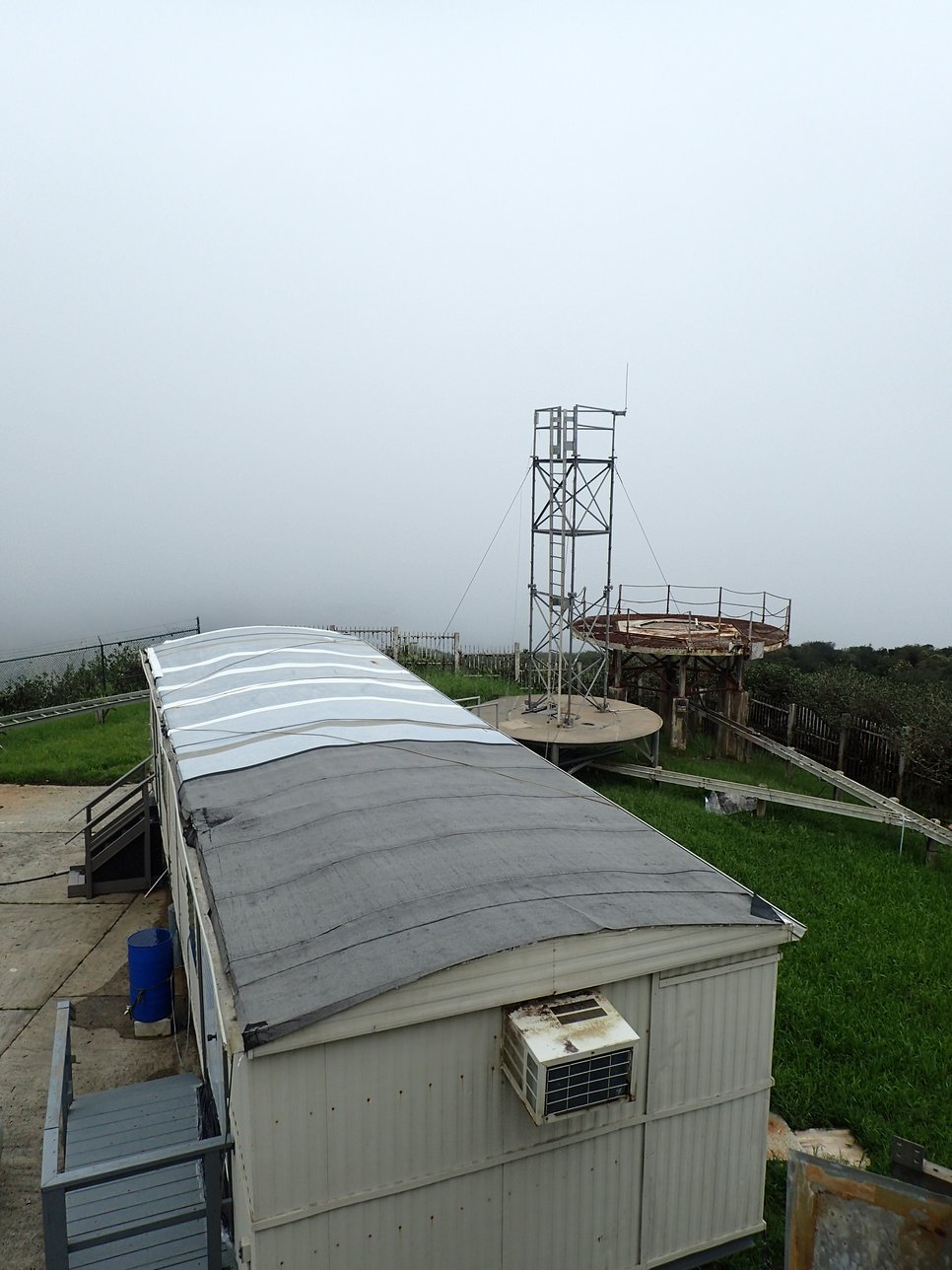
Hurricane creates new research topic
On his return, Nicolás Gómez Andújar will analyze one of the impacts that the hurricane has generated. Since the power supply has not yet been re-established, most of the inhabitants of San Juan, Puerto Rico’s capital, are currently using diesel power generators, which are causing pollution to an extent hitherto unknown in the usually very clean air of San Juan.
As Puerto Rico still lacks the necessary infrastructure and most measuring devices are unusable at the moment, the Particle Chemistry Department designed a special research setup for Nicolas and his colleagues to study the changes in air quality. "Two small measuring devices with which the particle concentration and particle size distribution are measured have been converted by us to fit for the purposes at Puerto Rico," explains Frank Drewnick, group leader at MPIC, who in collaboration with his colleagues from the Particle Chemistry Department, the electronics workshop and the mechanical workshop built a special measuring box. With the help of a large car battery, the two measuring instruments – which had been previously used in Iran – are now ready for permanent (24 hours) applications. Afterwards, they installed the two instruments into an aluminum box together with a data storage unit.
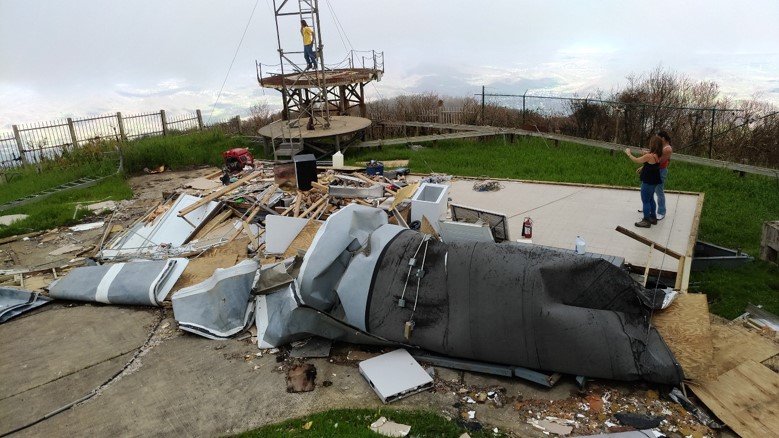
"The box gives us a compact, completely self-contained and weatherproof construction, which can be placed at any location to measure the ambient aerosol," says Nicolás Gómez Andújar grateful for the broad support. After finishing his measurements, the measuring box will return to the MPI for Chemistry for further research missions. Nicolás himself hopes that after his return he will be able to complete his bachelor's degree as soon as possible and join a master's program. He sees his future in research: "I want to stay in research, because there is a lot to be done in my home country, and I want to contribute to the necessary development."
